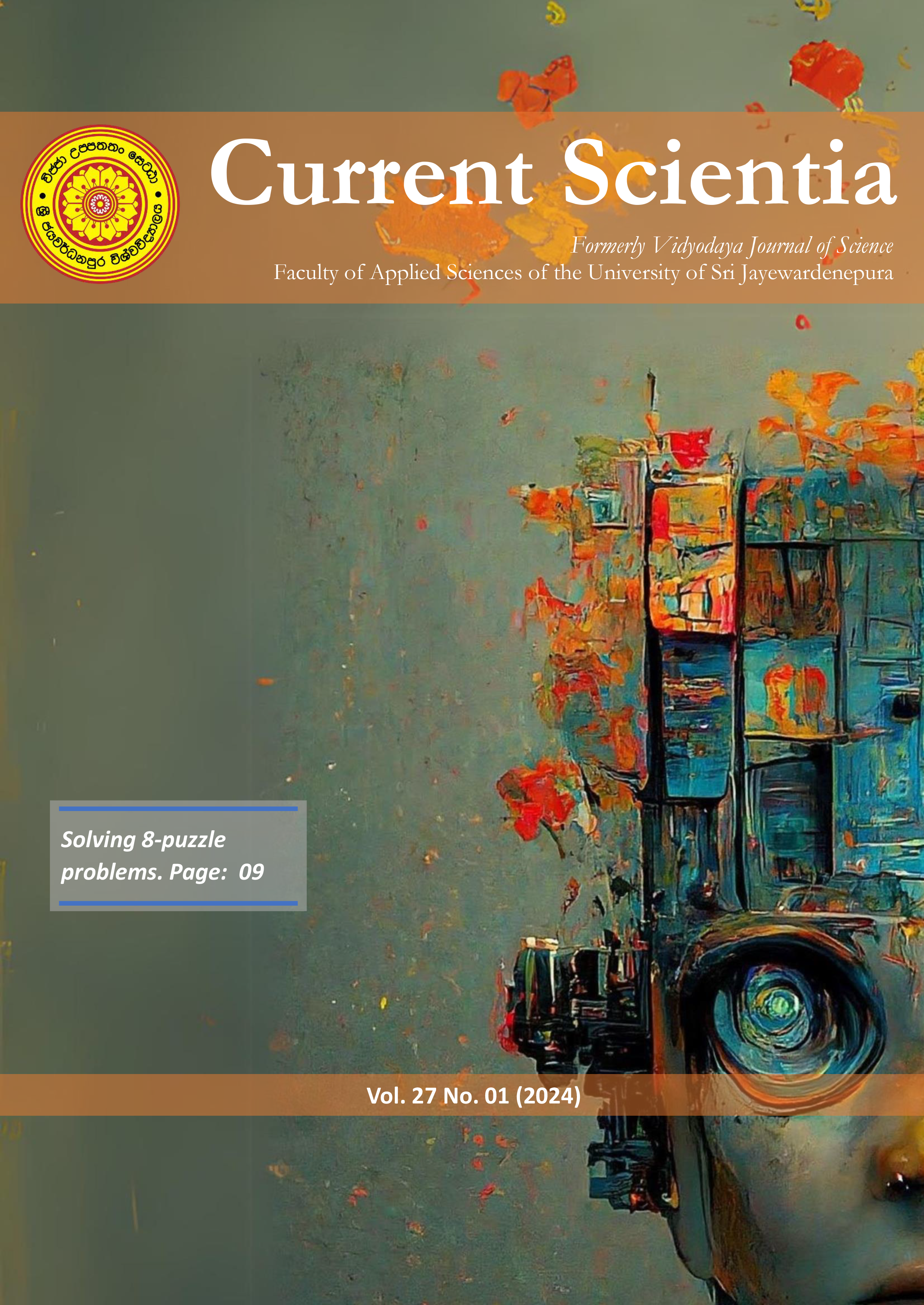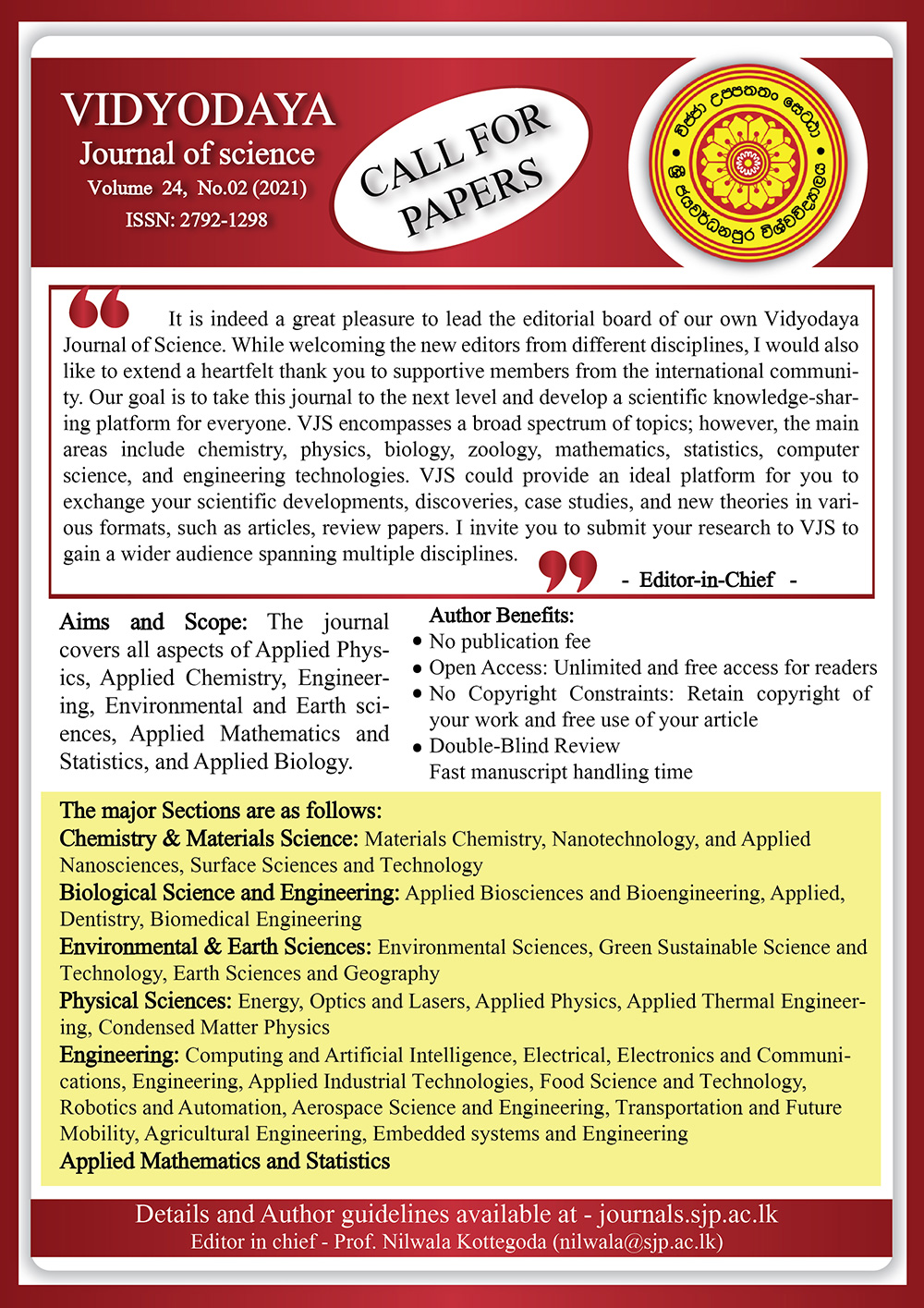Characterization of the Physical, Mechanical, and Morphological Properties of Films Generated from Cassava Pomace
DOI:
https://doi.org/10.31357/vjs.v27i01.7499Abstract
The pollution of the environment caused by conventional packing materials such as plastic has driven the need for biodegradable alternatives. Although starch is an important component in the development of such materials, starch is not suited for use as a biodegradable packaging material due to global hunger challenges. The current study successfully utilized the major industrial waste of the cassava starch processing industry to develop biodegradable films. Three packaging materials were developed using the casting procedure, which involved combining various quantities of cassava pomace (CP) and plasticizer combinations. The developed films were analyzed to evaluate their characteristics, such as color, thickness, density, moisture content, solubility, swelling index, mechanical properties, microscopic, and FT-IR characteristics. In contrast, concerning multiple aspects, each of the films demonstrated unique characteristics. The film with the lowest CP (C1) appeared to be thinner and lighter in color; however, it tended to contain a greater amount of moisture. The C1 film exhibited an adhesive property that was wellsuited for use as cling film. The intermediate CP film (C2) stands out because of its excellent mechanical characteristics, including high tensile strength and elongation at break. These attributes make it particularly well-suited for packaging applications, such as the production of biodegradable bags. Conversely, the swelling index and thickness of the highest CP film (C3) outperform both other films, suggesting that it may have the capacity to absorb higher moisture content. The scanning electron microscopic images revealed a uniform surface for all three samples. However, the cross-sectional images of C3 indicated internal cracks that were consistent with the lowest mechanical characteristics and flexibility. Therefore, the C3 film is more suitable for packaging items like plates. These films can serve as a viable, environmentally friendly, and biodegradable alternative to conventional packaging materials. Keywords: Mechanical properties, cassava pomace, physical properties, biodegradable films, micro-structure properties




